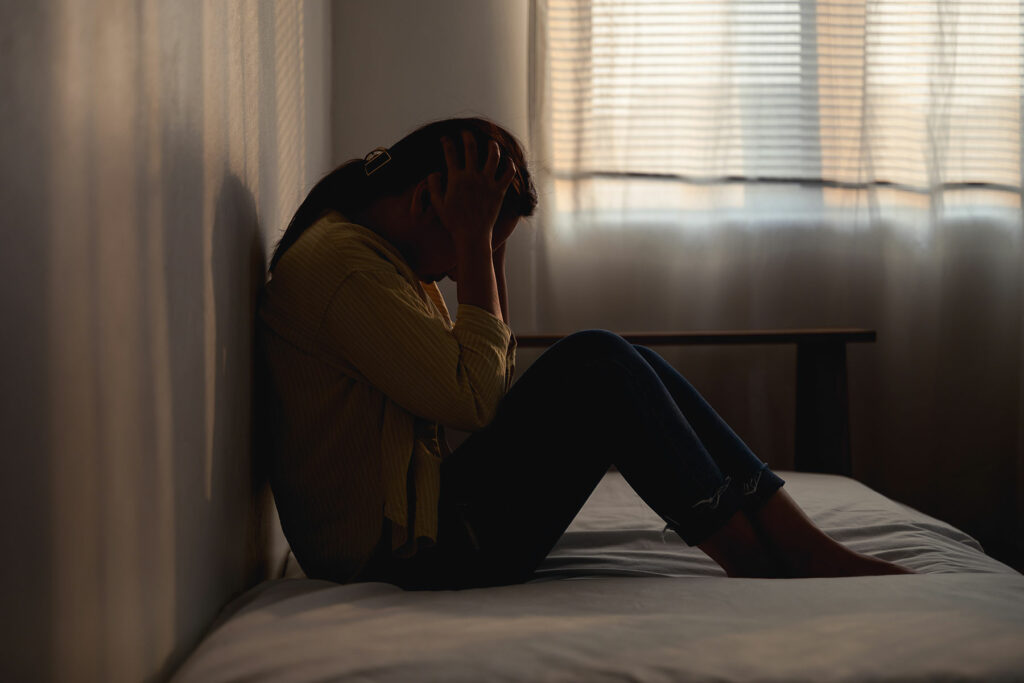Post-traumatic stress disorder (PTSD) is a mental health condition that can develop after experiencing or witnessing a traumatic event. It’s often associated with violent or dangerous events such as physical or sexual abuse, combat, natural disasters, and horrific accidents, but any event that causes intense fear, helplessness, or shock can lead to PTSD. People can also develop PTSD after less personally violent yet still traumatic situations, like losing someone you care about or watching them suffer harm. PTSD can affect everyday life in many ways—some subtle, some obvious. Knowing how PTSD can impact a person’s life is an important first step toward getting help and finding healing.
Honey Lake Clinic’s PTSD treatment program provides clinically sound, faith-based treatment that addresses the whole person—body, mind, and spirit—to help patients find lasting healing from PTSD. If you or a loved one is struggling with this condition, call 888.428.0562 today to learn more about our lakeside facility in Florida and how we can help.
How Does PTSD Develop?
When a person experiences or witnesses a traumatic event, their body’s natural response is to enter “fight or flight” mode. This triggers hormones like adrenaline and cortisol to prepare the body for danger. In most cases, these hormone levels return to normal once the threat has passed.
However, in people with PTSD, these hormones continue to flood the body even after the danger has passed. This can result in symptoms such as flashbacks, nightmares, and intense feelings of fear or anxiety. Over time, PTSD can significantly impact a person’s daily life.
Five Ways PTSD Can Affect a Person’s Life
-
Problems at Work
People with PTSD miss more days at work and work less efficiently. Certain symptoms of PTSD, such as difficulties concentrating and problems sleeping, may make it hard for you to pay attention at work, stay organized, or make it to work on time. Likewise, people with PTSD often have problems at school. While nearly everyone with PTSD has difficulty working, some may not be able to work at all because their symptoms make it too challenging.
-
Problems with Relationships
Partners of people with the condition may be faced with a number of stressors that go along with caring for and living with someone with a chronic disease. The sources of stress include financial challenges, managing the person’s symptoms, dealing with crises, loss of friends, or loss of intimacy. These can have a major negative impact on a relationship.
Social isolation is also common with PTSD. You feel different from other people and can have problems communicating with and interacting with others. You can find it difficult to trust other people or may find yourself withdrawing from others to avoid emotional intimacy.
-
Mental Health Problems
If you have PTSD you are at much greater risk of developing a number of other mental health disorders, including:
- Anxiety disorders (e.g., panic disorder, generalized anxiety disorder)
- Depressive disorders
- Substance abuse and dependence
- Compulsive behaviors
Even though these problems may have existed before you developed PTSD, they can become worse when you develop PTSD.
-
Substance Use Problems
PTSD symptoms can be so uncomfortable that some people with the condition may try to cope by drinking too much alcohol, using drugs, smoking, or overeating. However, instead of helping you cope and feel better temporarily, these substances actually make your symptoms worse in the long run.
Known as “self-medicating,” this behavior can quickly lead to addiction and other health problems. It’s important for individuals with PTSD to seek help from a mental health professional who can provide healthier coping strategies.
-
Physical Health Problems
In addition to mental health problems and addiction, having PTSD seems to raise the risk of physical health problems, including pain, diabetes, obesity, heart problems, respiratory problems, and even sexual dysfunction. These problems may arise because you are less aware of your health, avoid getting medical care, or engage in unhealthy behaviors to cope with the stress caused by PTSD.
How PTSD Treatment Can Help
The good news is that PTSD is treatable and recovery is possible. With the right treatment, many people with PTSD experience significant improvement in their symptoms and quality of life. At Honey Lake Clinic, our Christian PTSD treatment program integrates evidence-based therapies with a faith-based approach to help patients find lasting healing. Our team of compassionate and experienced professionals work together to create personalized treatment plans that address the physical, emotional, and spiritual aspects of PTSD.
Call Honey Lake Clinic Today
Don’t let PTSD control your life any longer. Contact Honey Lake Clinic today to learn more about our PTSD treatment program and how we can help you or your loved one find hope and healing. Call us at 888.428.0562 or reach out online to get started on your journey to recovery today.
